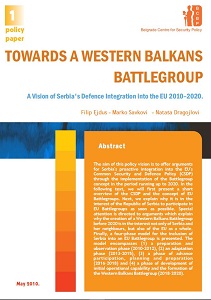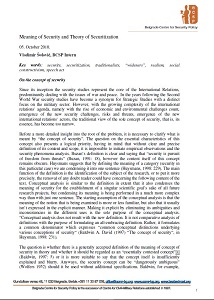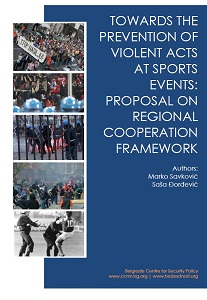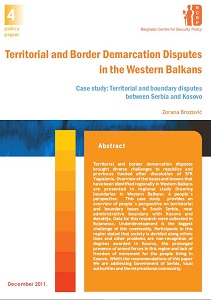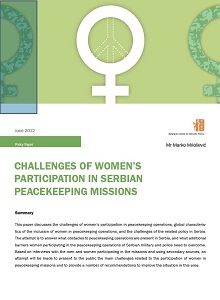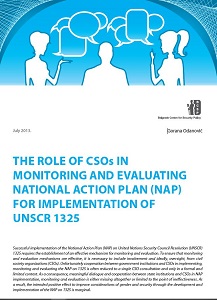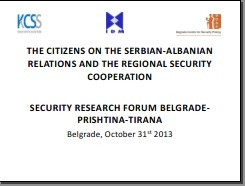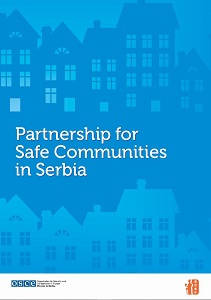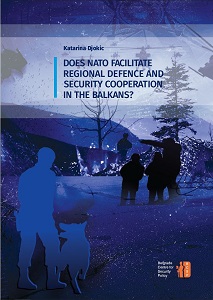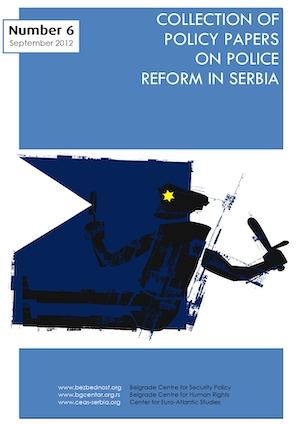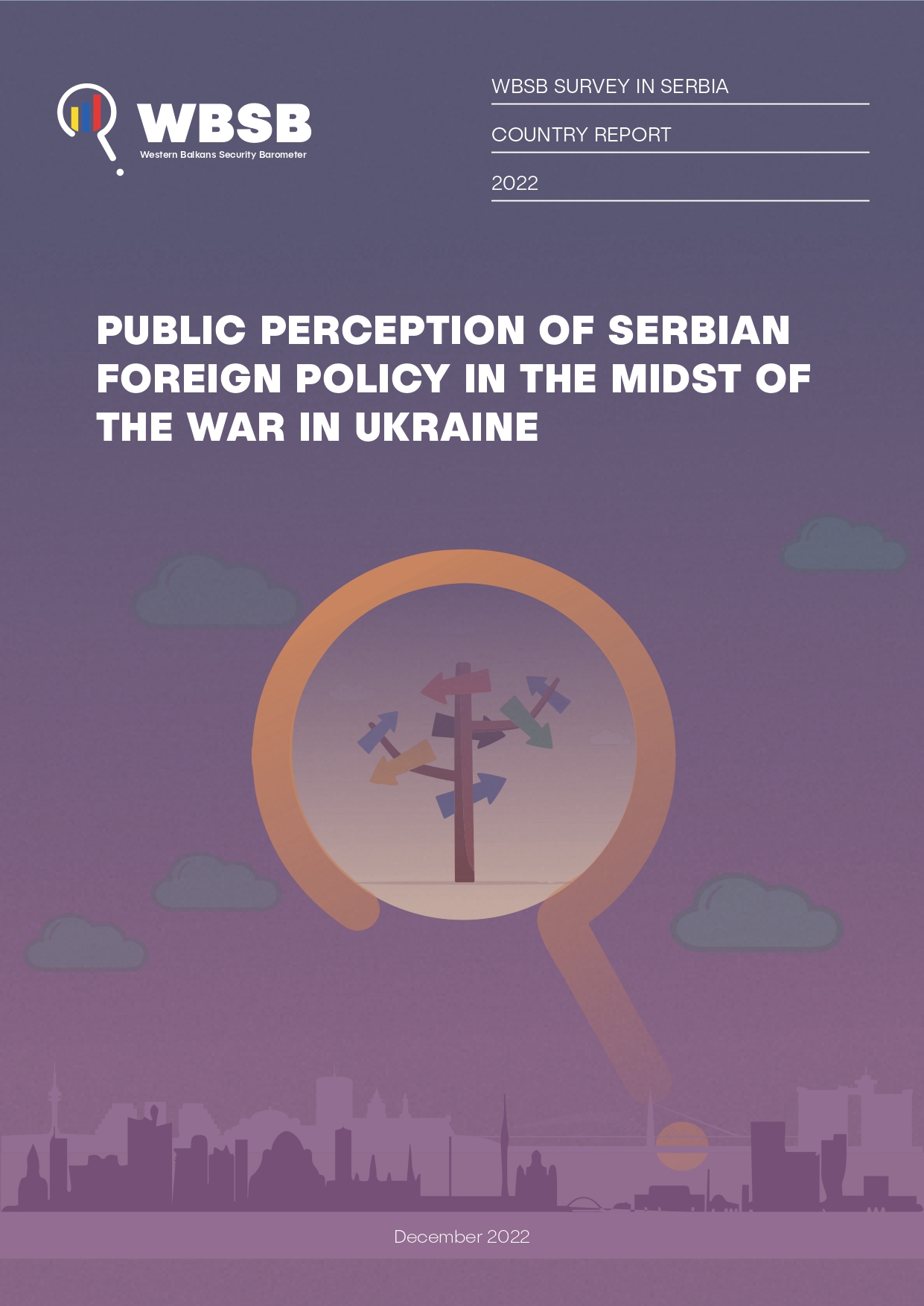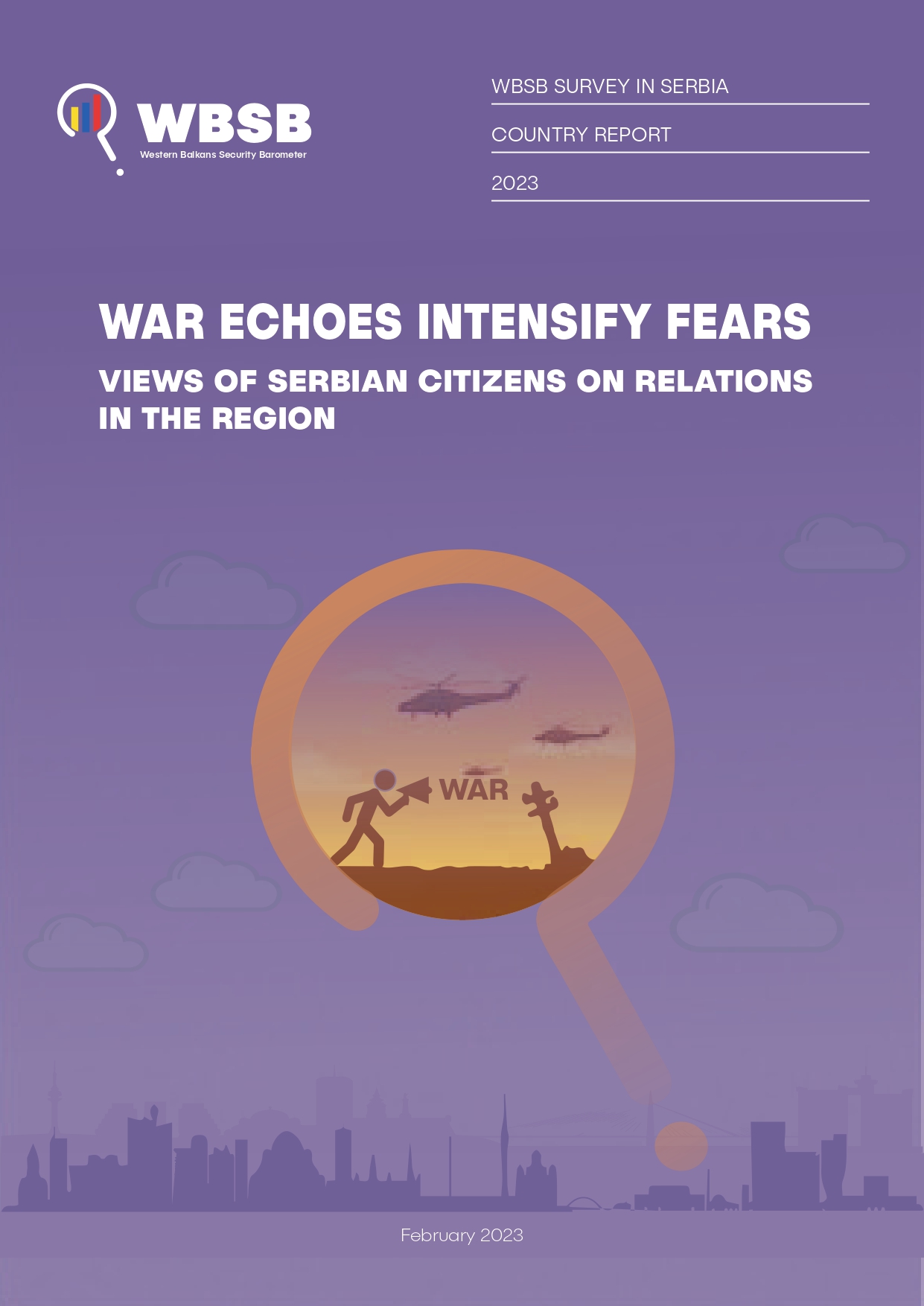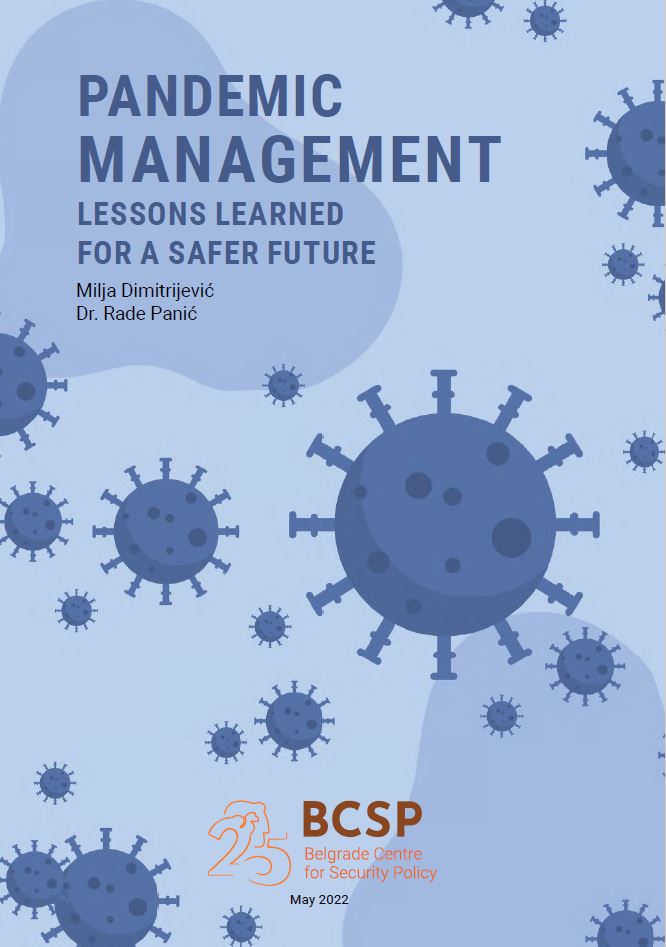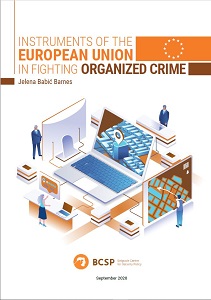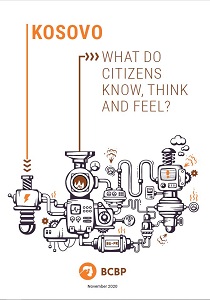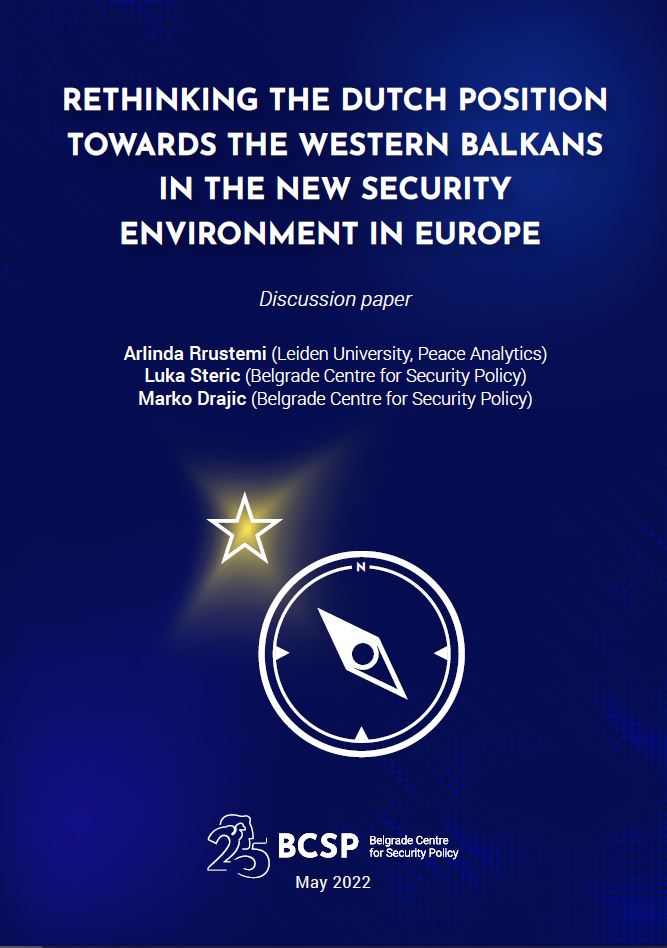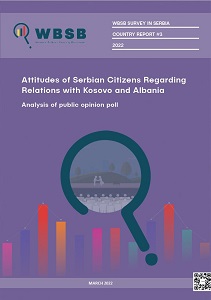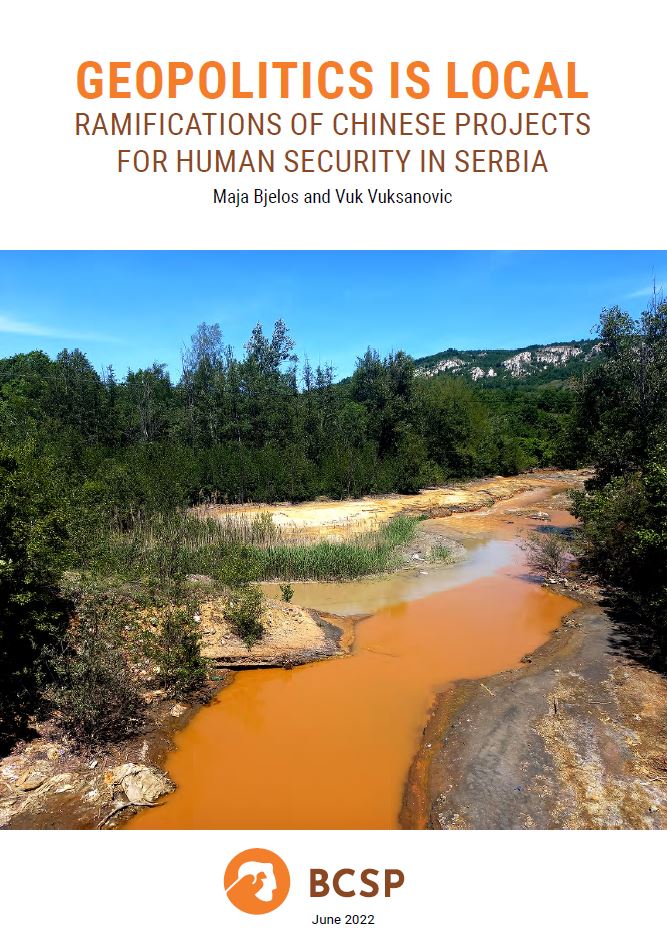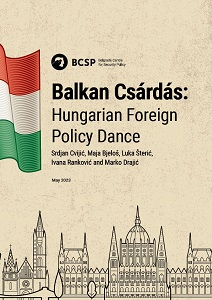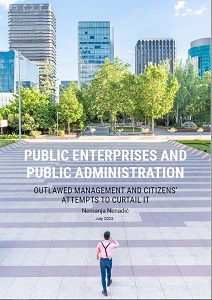PUBLIC PERCEPTION OF SERBIAN FOREIGN POLICY IN THE MIDST OF THE WAR IN UKRAINE
Author(s): Vuk Vuksanović,Luka Šterić,Maja Bjeloš / Language(s): English
The war in Ukraine did not significantly affect the perception of the Serbian public regarding the major issues of Serbian foreign and security policy. In this context, this relates to how Serbian citizens think about the influence of great powers in their country and how the public perceives its relations with Russia and Western security institutions, the EU and NATO. The public opinion surveys also showed that the issue of Kosovo is still being perceived as a major foreign policy priority. There is a powerful cynicism in how the Serbian public views great power influences, as most respondents believe that external great powers bribe Serbian politicians and moguls to further their interests in the country. Russia and China are perceived as close foreign policy partners of Serbia, putting them in clear advantage over those who favour the EU on that front. The respondents also believed that Russia and China are sincere friends of Serbia and not players guided by their self-interest. As opposed to the study conducted by the Belgrade Centre for Security Policy (BCSP) in 2020, which noted that Serbs perceived Chinese influence in the country as more positive than Russian influence, the latest survey shows that those who believe Russian influence in Serbia is positive have a slight edge over those who believe the same about Chinese influence. This is most likely the result of the fact that China has not been in the spotlight in recent months. As opposed to Russia and China, the EU is being cynically perceived as a self-interested actor. On that same front, there are more of those who perceive the EU’s policies towards Serbia as hostile than those who perceive these policies as friendly. When it comes to perceptions of the US, the spectrum is dominated by those who perceive the US as a self-interested power and those who perceive it as an enemy of Serbia. The public also treats the issue of foreign direct investments (FDI) as important for the country’s foreign policy. However, the FDI are more likely to be considered highly important among those who favour the EU membership than among those who oppose the membership. Despite Russia’s invasion of Ukraine, the public opinion survey demonstrates that Russia is still a major vector in Serbian foreign policy. Extremely positive perception of Russia is a product of recent Serbian history but also of the radical pro-Russian narrative that was pushed for years in the pro-government media and tabloids. Serbian public largely subscribes to the Russian point of view on the Ukraine war, with the majority blaming NATO and the US for its outbreak. The majority of the Serbian public is against introducing sanctions against Russia, with the majority doing so on the ground that Serbia experienced sanctions in the 1990s. This fact demonstrates that Serbian perceptions of Russia are frequently based on historical experiences from the 1990s. Still, despite sympathies towards the Russian side in the ongoing war, the Serbian public is also showing a balanced take on some other issues, proving how deep the Serbian balancing act is embedded with the Serbian public. Most of the population believes that Serbia needs to maintain neutrality in the Russia-Ukraine war. In the same spirit, most respondents did not think there would be winners in the ongoing war between Russia and Ukraine since everybody would be at a loss. Similarly, the majority was willing to accept both Russians and Ukrainians fleeing the war, although the same welcoming stance was not displayed regarding the Russian deserters. Russia is still being perceived as the country’sgreatest friend and most important foreign policy partner. Some Serbian perceptions of Russia are unrealistic, as demonstrated by the fact that the majority believes that Russia will be the dominant power in the XXI century, not China or the US. In regards to the EU, the polls showed that although war generated hope among some in the Western Balkans that the new geopolitical crisis would give stronger impetus to the EU enlargement, that did not impact the perception of the EU in the Serbian public. Serbian citizens remain divided over the country’s possible membership in the EU. The survey also identified two clear trends. The first is the evident decline in support for EU integrations since the incumbent Serbian government came to power in 2012. The second trend is a rise in Euroscepticism and of the opponents of European integrations due to anti-EU messaging in the pro-government media and tabloids, particularly in the past five years. The polls clearly suggest a strong disappointment with the past twenty years of political transition, which is particularly acute among older generations that do not believe that the EU will ever accept Serbia as a member. Among the younger generations, the prevailing mood is that the EU will accept Serbia as a member, but not in the near future. Regarding NATO, security cooperation between Serbia and NATO is highly advanced, particularly regarding security crises in the north of Kosovo. Serbian officials frequently refer to NATO’s mission in Kosovo (KFOR) as a stabilising force. While it does not aprire to become a member, Serbia is a member of NATO’s Partnership for Peace (PfP) programme, exercising within this programme Individual Partnership Action Plan (IPAP), the higest level of cooperation between NATO and non-member states. 1 However, the Serbian public continues to view NATO negatively. Most respondents view NATO as the enemy and a self-interest geopolitical player. In the surveys, those who are against NATO membership for Serbia and in favour of neutrality are a powerful majority. In public, there is also a mood that Serbia, on security and military matters, should cooperate with Russia and China more than it does with NATO. The public is also sharply against any cooperation with NATO, while those in favour of cooperation with NATO are in favour as long as Serbia maintains its neutral status. The war in Ukraine additionally worsened Serbia’s perception of NATO, which continues to be burdened with the legacy of the 1999 Kosovo war. The surveys established the sharp divide as those who watch pro-government media are against NATO membership, while those in favour of membership are more likely to watch opposition media. The survey also established that the issue of Kosovo continues to dominate the foreign policy agenda for the Serbian public, as the majority of respondents view the issue as very important for the country’s foreign policy. What was striking was the salience of the Kosovo issue for the younger generations in Serbia. The research also established that those who view Kosovo as important are more likely to oppose EU membership for Serbia. Most of those favouring EU membership also view Kosovo as important. There are also nuances, as those who emphasise Kosovo are more likely to blame Ukraine and the West for the outbreak of the Ukraine war. This fact shows how the legacy of the 1999 war continues to shape the Serbian public’s perception of contemporary affairs. Those who do not consider Kosovo a priority for Serbian foreign policy are more likely to blame Russia for the war and be more likely to favour Serbia introducing sanctions against Russia. However, for those who are against the sanctions, Kosovo is less of a factor in shaping their preferences than the fact that Serbia experienced sanctions in the 1990s and the perception of Russia as Serbia’s greatest friend.
More...
